
The Enchanting Marrakech Region: Morocco's Jewel
The Marrakech Region, located in central Morocco, is a captivating blend of ancient culture and modern vibrancy. Known for its bustling souks, historical palaces, and vibrant gardens, this region offers a unique experience for every traveler. The heart of the region, Marrakech city, is a sensory delight characterized by its maze-like medina, where the aroma of spices fills the air and artisans sell their crafts. Beyond the city, the region's diverse landscapes beckon. The Atlas Mountains provide a stunning backdrop and offer numerous trekking opportunities for adventure seekers. The picturesque Berber villages scattered throughout the mountains offer a glimpse into traditional Moroccan life, where hospitality is a way of life. The Marrakech Region is also home to the Agafay Desert, a rocky expanse that contrasts with the Sahara's dunes but is equally mesmerizing. Here, you can enjoy camel rides, quad biking, or simply soak in the serene beauty. The region's culinary scene is a feast for the senses, with dishes like tagine and couscous showcasing the rich flavors of Moroccan cuisine.
Local tips in Marrakech Region
- Visit early in the morning or late in the afternoon to avoid the midday heat.
- Carry small denominations of local currency for shopping in the souks.
- Dress modestly, especially when visiting religious sites.
- Learn a few basic phrases in Arabic or French to enhance your interactions with locals.
- Hire a local guide for a more immersive experience in the medina and beyond.
The Enchanting Marrakech Region: Morocco's Jewel
The Marrakech Region, located in central Morocco, is a captivating blend of ancient culture and modern vibrancy. Known for its bustling souks, historical palaces, and vibrant gardens, this region offers a unique experience for every traveler. The heart of the region, Marrakech city, is a sensory delight characterized by its maze-like medina, where the aroma of spices fills the air and artisans sell their crafts. Beyond the city, the region's diverse landscapes beckon. The Atlas Mountains provide a stunning backdrop and offer numerous trekking opportunities for adventure seekers. The picturesque Berber villages scattered throughout the mountains offer a glimpse into traditional Moroccan life, where hospitality is a way of life. The Marrakech Region is also home to the Agafay Desert, a rocky expanse that contrasts with the Sahara's dunes but is equally mesmerizing. Here, you can enjoy camel rides, quad biking, or simply soak in the serene beauty. The region's culinary scene is a feast for the senses, with dishes like tagine and couscous showcasing the rich flavors of Moroccan cuisine.
When is the best time to go to Marrakech Region?
Iconic landmarks you can’t miss
Jardin Majorelle
Explore the lush beauty of Jardin Majorelle in Marrakech, a botanical garden that combines art, culture, and nature in a captivating oasis.
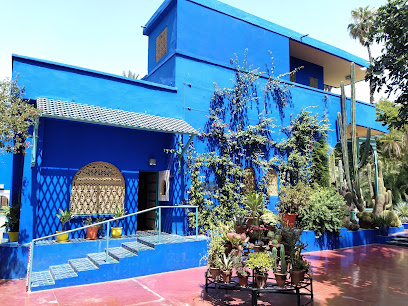
Jemaa el-Fnaa
Discover the vibrant culture and culinary delights of Jemaa el-Fnaa, Marrakech's iconic square and marketplace, a UNESCO World Heritage site.
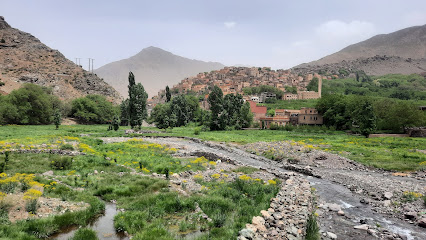
Bahia Palace
Explore the breathtaking Bahia Palace, a historical landmark in Marrakesh, showcasing exquisite Moroccan architecture and lush gardens.
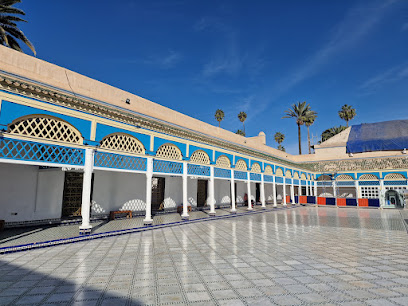
Koutoubia
Explore the breathtaking Koutoubia Mosque, Marrakesh's iconic landmark, where history, architecture, and vibrant local culture converge.
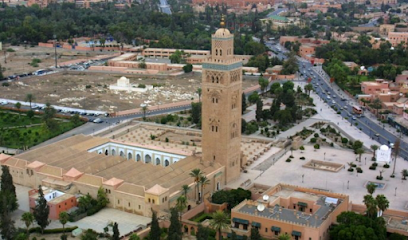
Saadian Tombs
Discover the rich history and exquisite architecture of the Saadian Tombs, a captivating historical landmark in Marrakesh, Morocco.
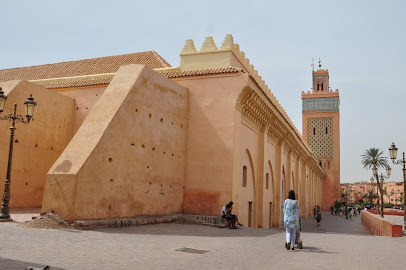
Badi Palace
Explore the majestic Badi Palace in Marrakech, a historical landmark showcasing Morocco's rich cultural heritage and stunning architectural beauty.
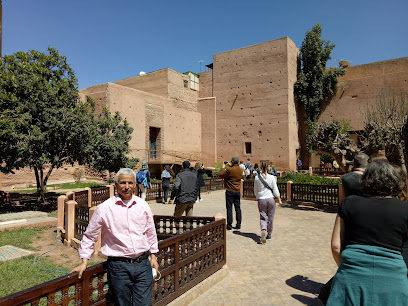
Menara Gardens
Explore the tranquil beauty and historical charm of Menara Gardens, a serene escape in the heart of Marrakesh, surrounded by olive groves and stunning mountain views.
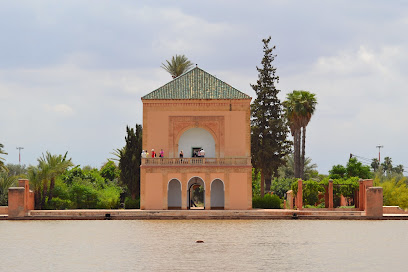
Medresa Ben Youssef
Explore the exquisite beauty and rich history of Medresa Ben Youssef, a must-visit historical landmark in the heart of Marrakech.
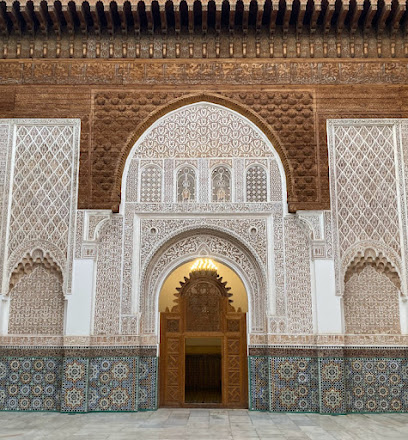
Le Jardin Secret
Explore the enchanting Le Jardin Secret in Marrakech, a botanical garden blending history, art, and tranquility in a hidden oasis.
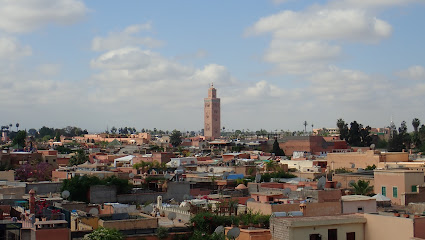
Cyber Park Arsat Moulay Abdesalam
Explore the enchanting Cyber Park Arsat Moulay Abdesalam in Marrakech—a serene blend of botanical beauty, historical landmarks, and technological wonders.
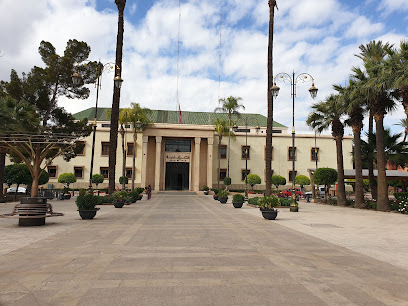
Souk Semmarine
Experience the essence of Moroccan culture at Souk Semmarine, Marrakesh’s vibrant market filled with crafts, spices, and local treasures.
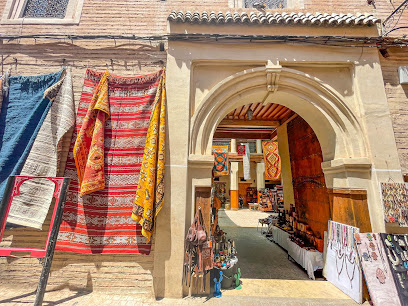
Anima (André Heller Garden)
Experience the enchanting beauty of Anima Garden, a serene botanical oasis filled with art, nature, and tranquility in Marrakech.
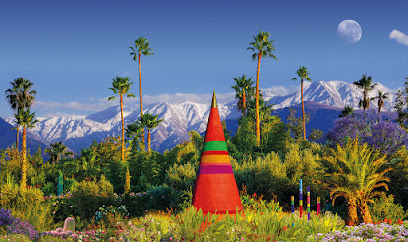
Marrakech Museum
Explore the rich artistic heritage of Morocco at the Marrakech Museum, a cultural treasure in the heart of the Medina.
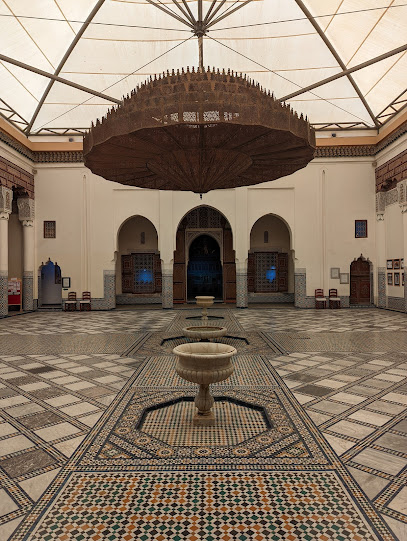
Dar Si Said Museum
Explore the rich heritage of Moroccan artistry at Dar Si Said Museum, a cultural gem in the heart of Marrakech's Medina.
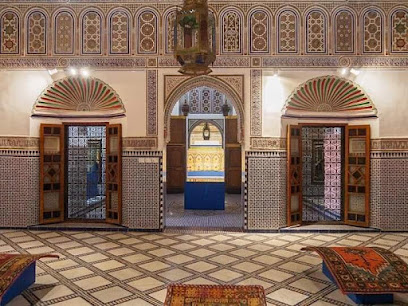
Medina of Marrakesh
Discover the vibrant culture and rich history of the Medina of Marrakesh, a UNESCO World Heritage site filled with stunning architecture and lively souks.
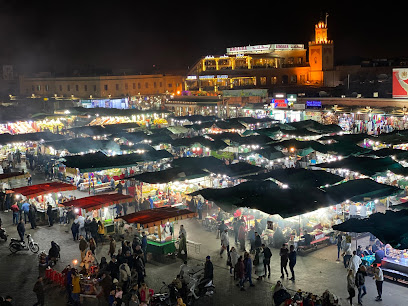
Unmissable attractions to see
Parc Lalla Hasna
Explore the lush landscapes and tranquil ambiance of Parc Lalla Hasna, a must-visit park in the heart of Marrakesh, Morocco.
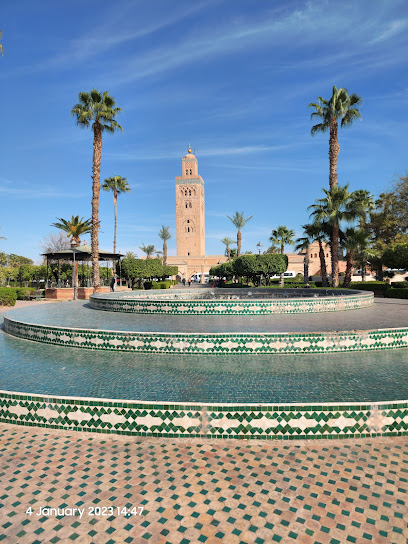
Henna Café
Discover the calm of Henna Café in Marrakesh – indulge in Moroccan cuisine, enjoy henna art, and relax in a charming atmosphere.
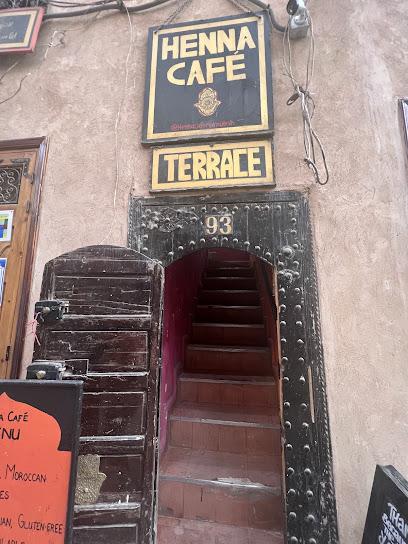
TBM - The Beautiful Marrakech
Explore the vibrant culture and history of Marrakech at The Beautiful Marrakech, your gateway to the wonders of Morocco.
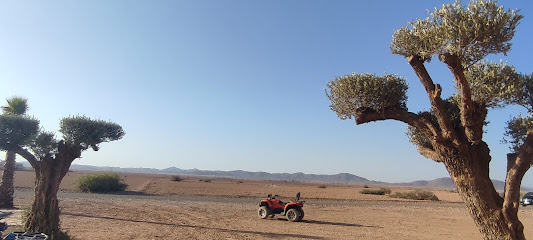
Meilleur Quad Marrakech
Embark on an unforgettable quad biking adventure in Marrakech's stunning desert landscapes, perfect for thrill-seekers and nature lovers alike.
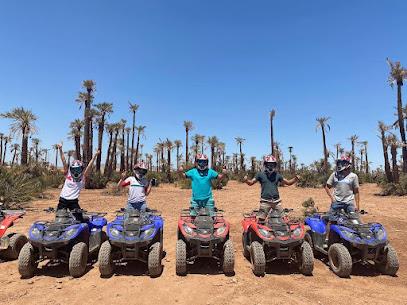
Arts Garden
Explore the serene Arts Garden in Marrakesh, a vibrant blend of nature and art, perfect for relaxation and cultural immersion.
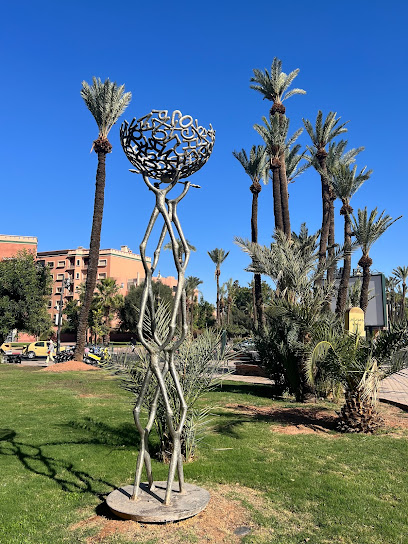
La Rosa Agafay
Experience authentic Moroccan cuisine against the breathtaking backdrop of the Agafay Desert at La Rosa Agafay, a culinary oasis near Marrakesh.
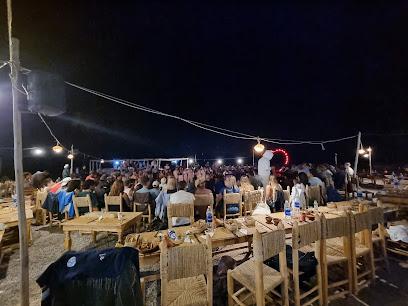
Star Poterie Marrakech
Immerse yourself in the vibrant world of Moroccan pottery at Star Poterie Marrakech, where art and culture come together in beautiful handcrafted pieces.
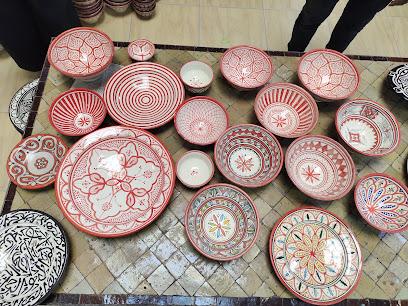
Entrance to Bahia Palace
Discover the historical elegance and stunning architecture of the Entrance to Bahia Palace in Marrakech, a must-see for every traveler in Morocco.
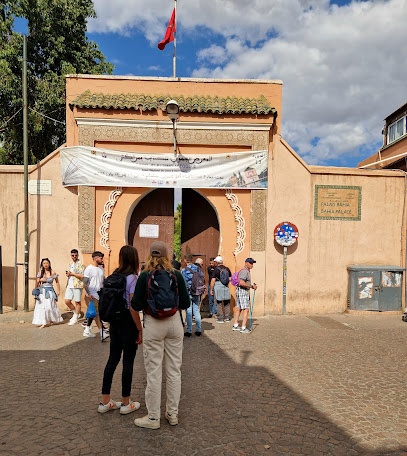
Dar Moulay Idriss
Explore Dar Moulay Idriss, a historical landmark in Marrakech's Medina, showcasing the rich cultural heritage and intricate architecture of Morocco.
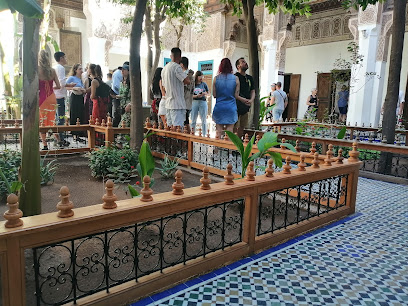
Marrakech Tours Guide
Discover the rich history, vibrant culture, and stunning architecture of Marrakech, a captivating destination that enchants every traveler.
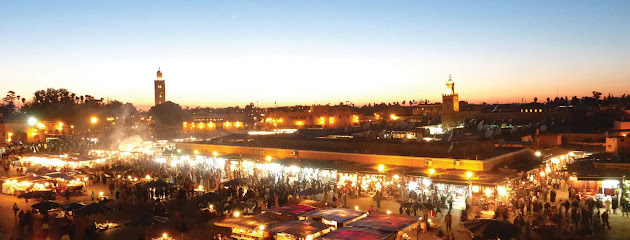
Moroccan Nature Trail
Experience the breathtaking beauty of Morocco with personalized journeys by Moroccan Nature Trail, your expert travel agency in Marrakesh.
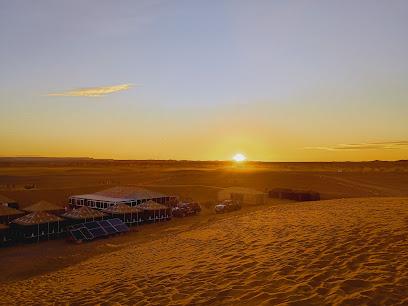
Menara Mall Fountain
Discover the tranquil charm of Menara Mall Fountain in Marrakesh, where modern design meets cultural richness in a vibrant shopping atmosphere.
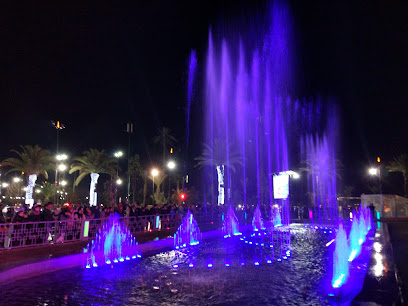
Atlas Mountain Tour
Discover the breathtaking beauty and rich culture of the Atlas Mountains, a must-visit destination for every traveler in Morocco.
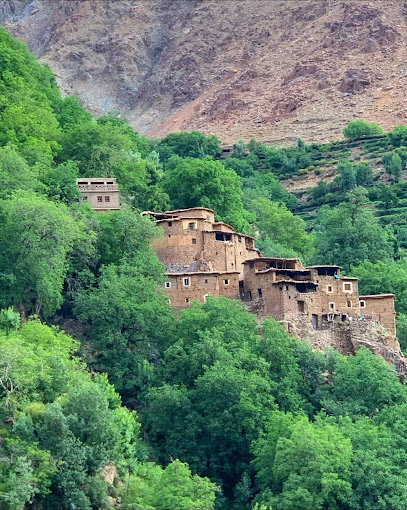
Place de l'hivernage
Experience the vibrant culture and serene beauty of Place de l'Hivernage, a must-visit oasis in the heart of Marrakesh.
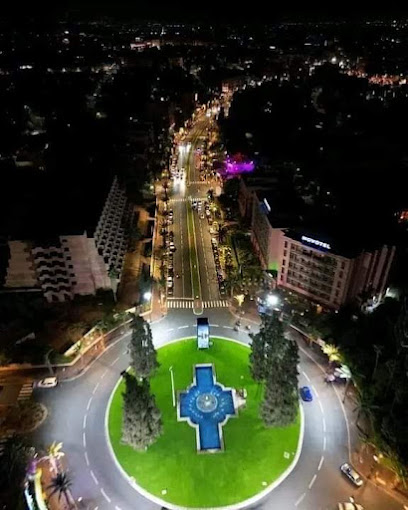
Dahbi Morocco Tours & Excursions
Discover the heart of Marrakesh with Dahbi Morocco Tours & Excursions, your gateway to authentic Moroccan experiences and cultural treasures.
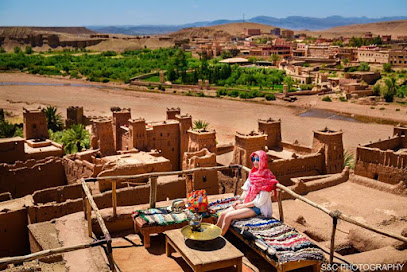
Essential places to dine
Le Bistro Arabe - Moroccan Jazz Restaurant in Marrakech
Discover exquisite Moroccan cuisine paired with enchanting live jazz at Le Bistro Arabe in Marrakech - where every meal is a celebration.
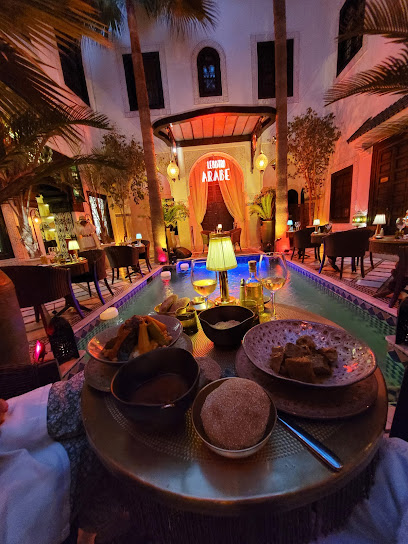
Nomad Marrakech
Discover authentic Moroccan cuisine at Nomad Marrakech – a perfect blend of tradition and modernity in a captivating setting.
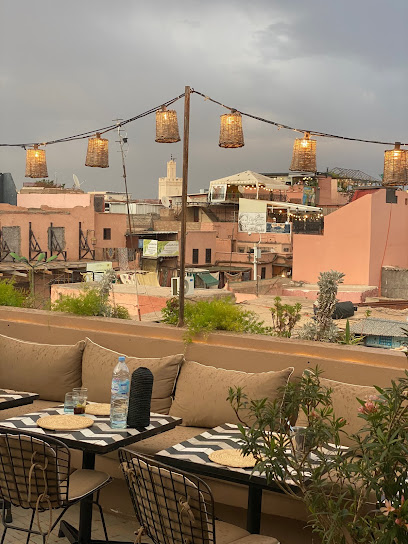
Le Jardin Restaurant Marrakech Medina
Discover authentic Moroccan flavors amidst lush gardens at Le Jardin Restaurant in Marrakech's historic Medina.
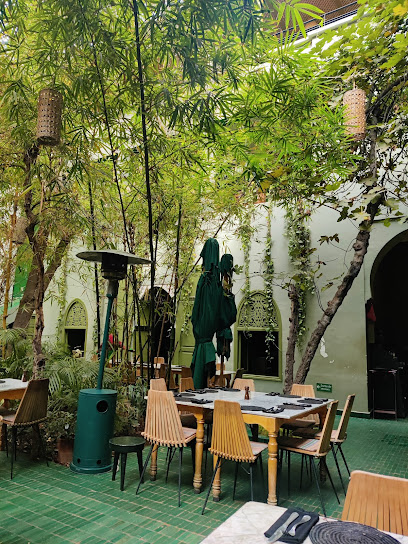
Le terrasse des épices
Experience exquisite Moroccan cuisine with stunning rooftop views at Le Terrasse des Épices in Marrakech's enchanting Medina.
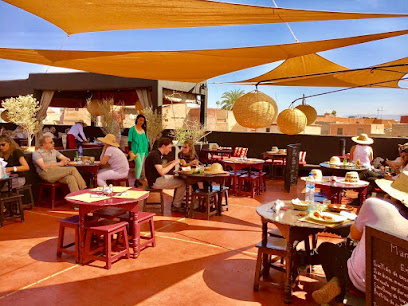
La Cantine des Gazelles
Discover authentic Moroccan flavors at La Cantine des Gazelles, where every dish tells a story amidst the vibrant heart of Marrakech.
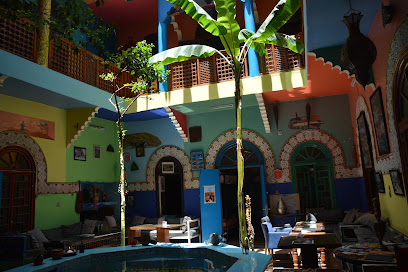
L'Ô à la Bouche
Experience exquisite Moroccan cuisine at L'Ô à la Bouche in Marrakesh - where tradition meets flavor in every dish.
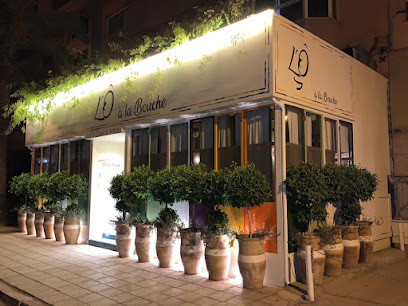
Dar Essalam
Experience the essence of Moroccan cuisine at Dar Essalam - a fine dining gem nestled in Marrakech's historic Medina.
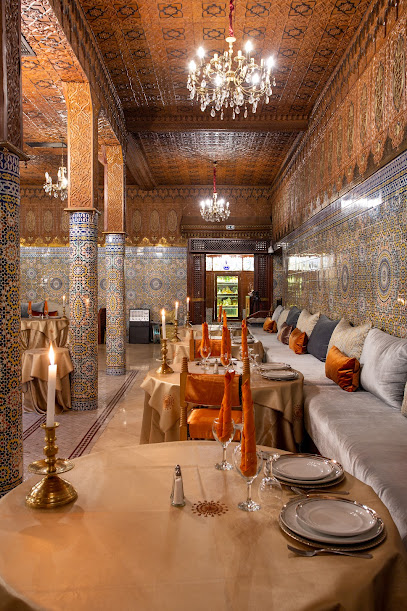
مطعم أزار
Experience authentic Moroccan and Lebanese flavors at مطعم أزار in Marrakesh – where culinary tradition meets vibrant ambiance.
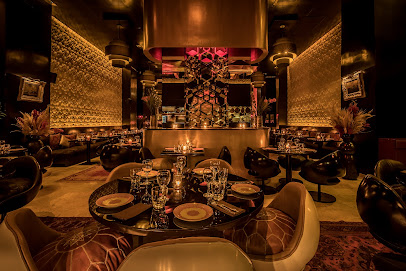
L'mida Marrakech
Experience authentic Moroccan cuisine at L'mida Marrakech, where tradition meets flavor in a cozy setting within the Medina.
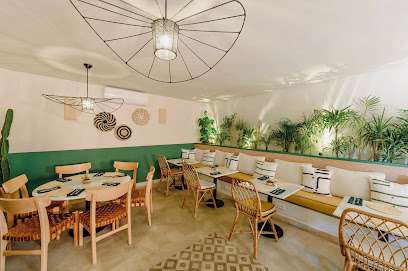
Dar Cherifa
Experience authentic Moroccan cuisine at Dar Cherifa - an oasis of flavor and tradition nestled in Marrakech's historic Medina.
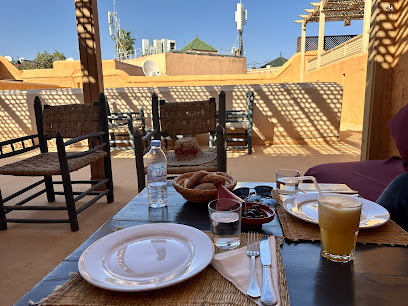
Bazaar Cafe
Experience a unique blend of Moroccan and Italian cuisine at Bazaar Cafe in Marrakesh's historic Medina.
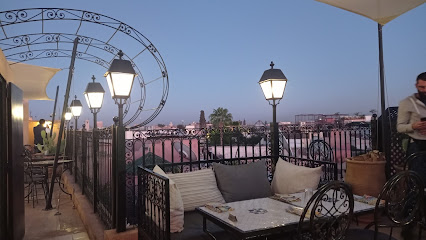
La Grande Table Marocaine
Discover authentic Moroccan cuisine at La Grande Table Marocaine within Hôtel Royal Mansour - where tradition meets luxury.
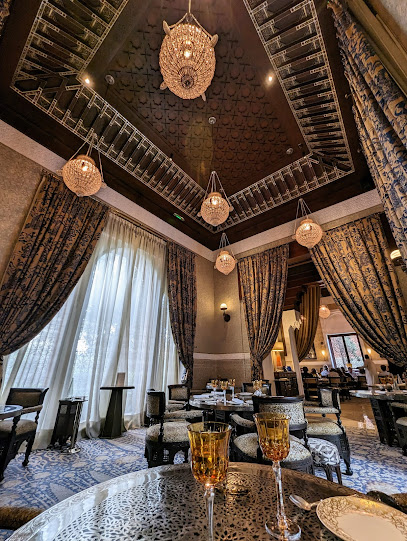
Dar Zellij
Experience the fusion of traditional Moroccan flavors with haute French cuisine at Dar Zellij in Marrakech's enchanting riad setting.
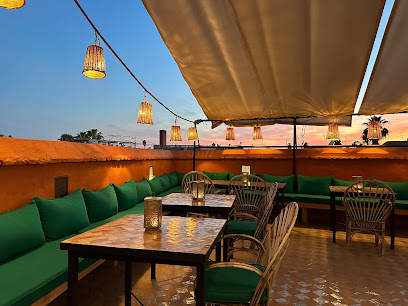
Dar Moha
Experience authentic Moroccan cuisine at Dar Moha in Marrakesh's vibrant Medina - a culinary journey through tradition and flavor.
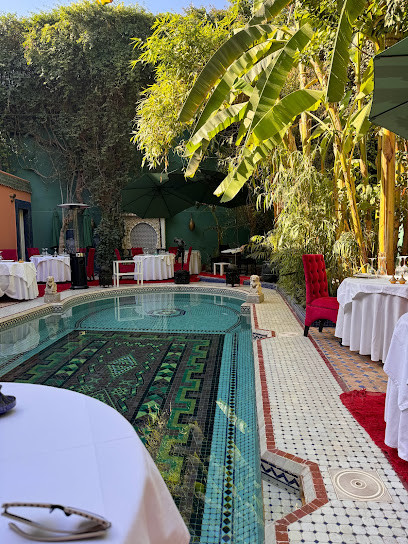
Un déjeuner a Marrakech
Discover culinary delights at Un Déjeuner à Marrakech - where Moroccan tradition meets European finesse in every dish.
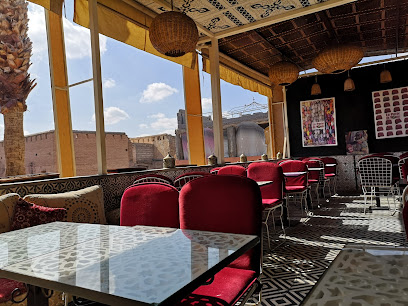
Markets, malls and hidden boutiques
Dar Bouchaib
Explore the essence of Moroccan craftsmanship at Dar Bouchaib, where unique gifts, cosmetics, and jewelry await every traveler.
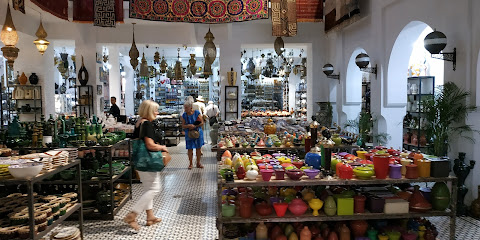
Max & Jan Medina
Explore the vibrant fashion scene at Max & Jan Medina in Marrakesh, where unique Moroccan craftsmanship meets modern style.
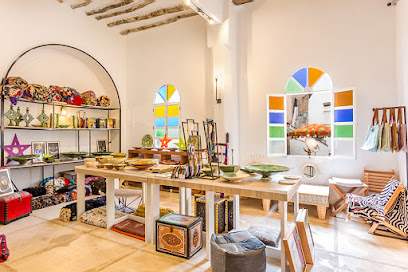
33 RUE MAJORELLE
Discover the charm of 33 RUE MAJORELLE in Marrakesh, where every souvenir tells a story and Moroccan artistry comes alive.
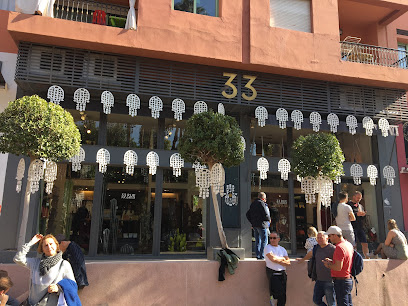
mohameds shop
Explore the charm of Marrakesh at Mohamed's Shop, where unique gifts and authentic Moroccan craftsmanship await every traveler.
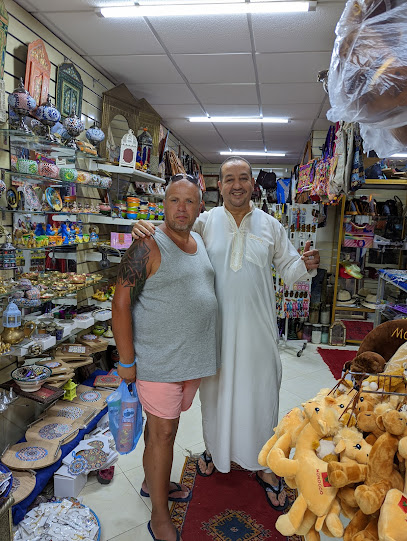
Rebeel_ store.
Explore Rebeel_ Store in Marrakech for unique vintage clothing and handmade treasures that reflect the rich culture and artistry of Morocco.
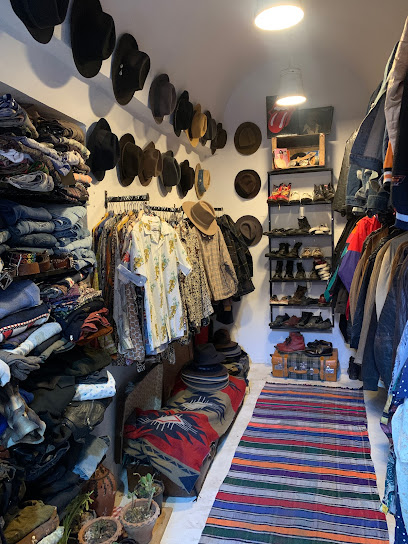
Bazar El Bouanani
Explore the vibrant Bazar El Bouanani in Marrakesh for unique Moroccan gifts and souvenirs that embody rich culture and craftsmanship.
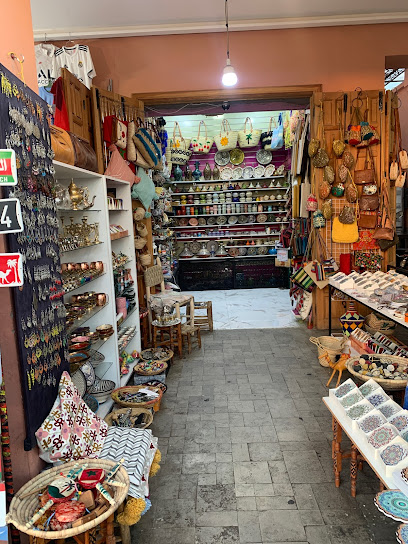
Norya ayroN Shop Marrakech
Explore the unique vintage clothing and stylish women's apparel at Norya ayroN Shop in Marrakech, where fashion meets Moroccan culture.
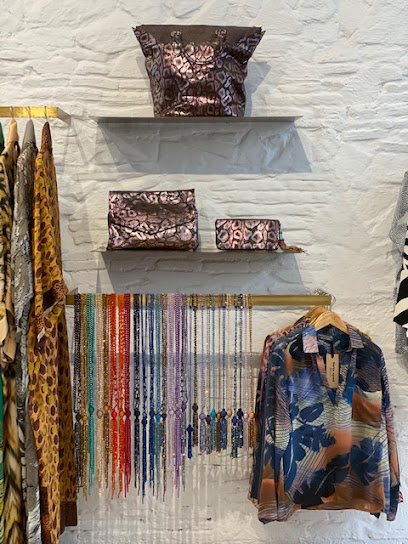
District 26 boutique Marrakech
Explore District 26 Boutique Marrakech for unique gifts and fashionable clothing that reflect the artistic heart of Morocco.
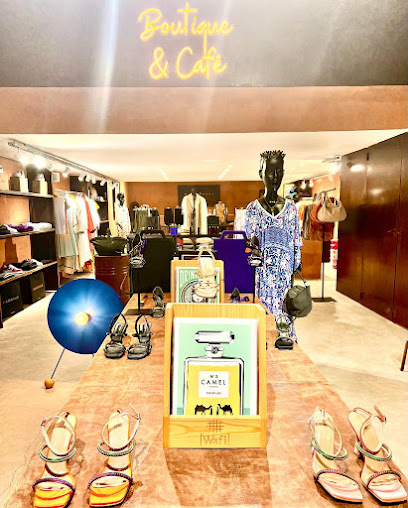
Zen Kesh
Explore Zen Kesh: A treasure trove of authentic Moroccan gifts and decor in the heart of Marrakesh's bustling Medina.
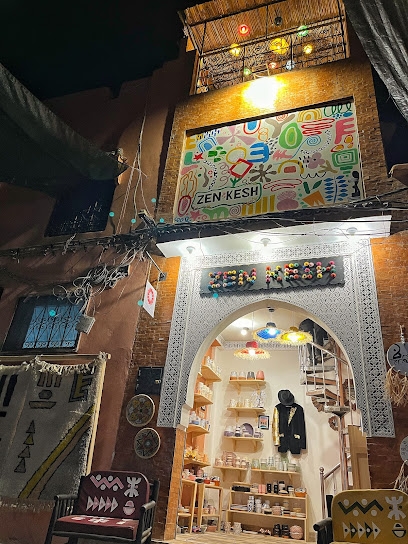
Boutique Majorelle
Explore the vibrant offerings at Boutique Majorelle, where Moroccan craftsmanship meets contemporary style in the heart of Marrakech.
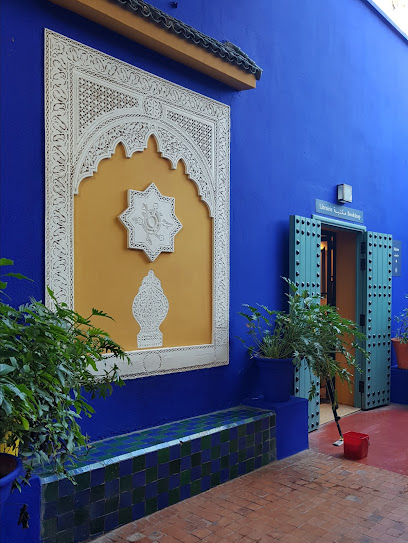
boutique la vannerie
Boutique La Vannerie: A treasure trove of handcrafted Moroccan gifts and interior decor in the heart of Marrakech's historic Medina.
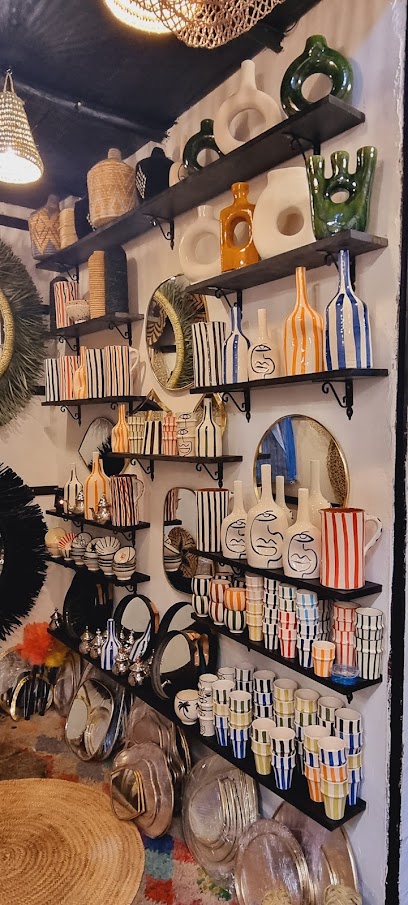
Haj Mbarek Store
Explore the vibrant Haj Mbarek Store in Marrakesh's Souk Semmarine for unique Moroccan handicrafts and gifts that capture the essence of Morocco.
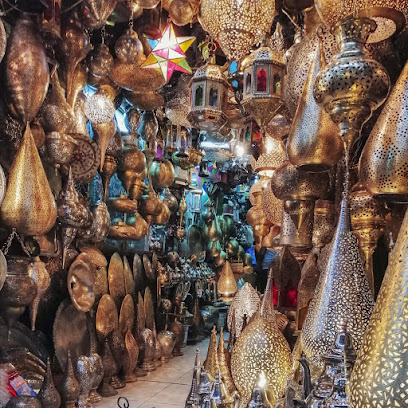
Outlet Shop Marrakech
Shop stylish clothing at discounted prices in the heart of Marrakech, where great fashion meets vibrant culture.
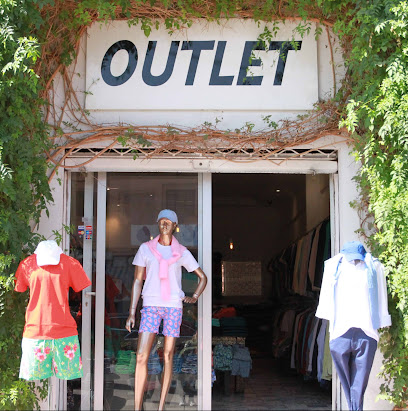
Latifshop Moroccan Artisanat & déco
Explore Latifshop in Marrakech for exquisite Moroccan handicrafts, perfect gifts, and a taste of local culture in the heart of the Medina.
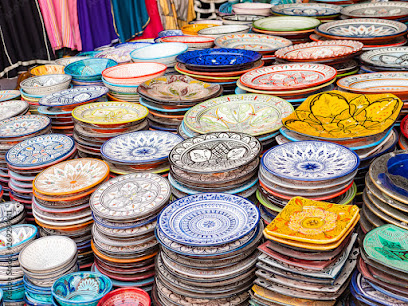
La Boutique Mamounia
Explore the enchanting La Boutique Mamounia in Marrakesh for unique gifts and authentic Moroccan craftsmanship, nestled within the luxurious Mamounia Hotel.
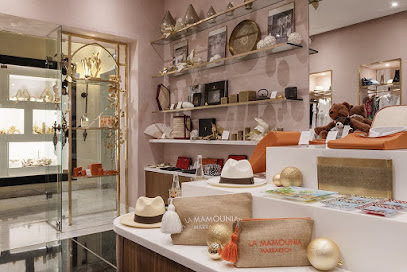
Essential bars & hidden hideouts
La Pergola
Discover La Pergola, a lively bar and restaurant in Marrakech's Medina, featuring tapas, burgers, and live music for an unforgettable dining experience.
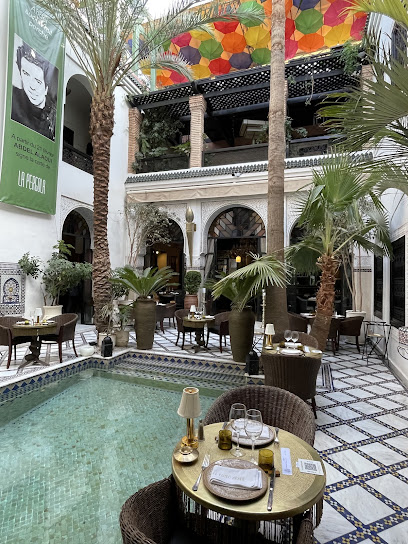
Kosybar Marrakech (Restaurant Bar & Spa)
Experience the perfect blend of Moroccan and Japanese cuisine at Kosybar Marrakech, a serene lounge with stunning views and exquisite flavors.
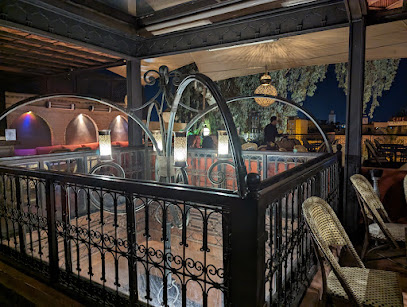
Restaurant - Le 68 Bar à Vin Marrakech
Experience the perfect fusion of French cuisine and Moroccan hospitality at Le 68 Bar à Vin in Marrakech, a haven for wine lovers and food enthusiasts.
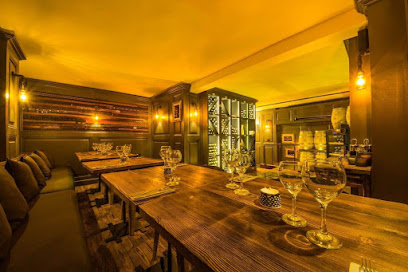
BAROMETRE COCKTAILS in Marrakech
Experience the luxurious blend of Mediterranean cuisine and exquisite cocktails at Barometre Cocktails in Marrakech.
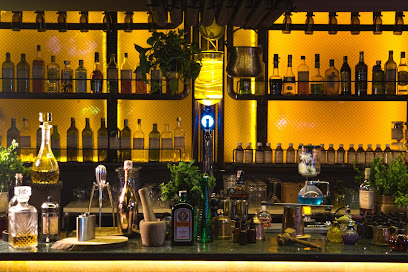
O’Mulligan Resto Pub
Discover O’Mulligan Resto Pub in Marrakesh - where vibrant nightlife meets delicious food and drinks, perfect for tourists seeking local experiences.
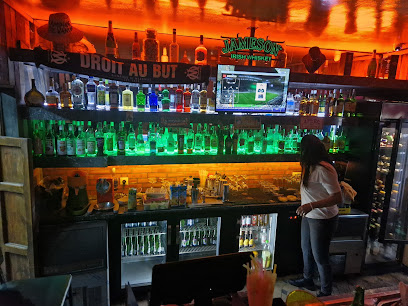
l'envers
Experience Marrakech's vibrant nightlife at L'Envers, a lively bar and tapas restaurant offering a blend of local and international flavors.
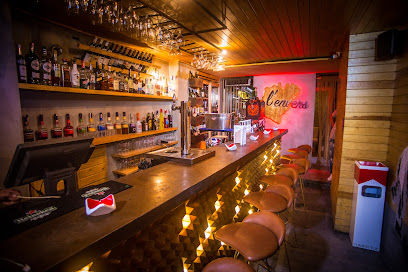
Chesterfield Pub
Chesterfield Pub in Marrakech - An inviting bar blending local charm and affordable drinks in the heart of Morocco's vibrant nightlife.
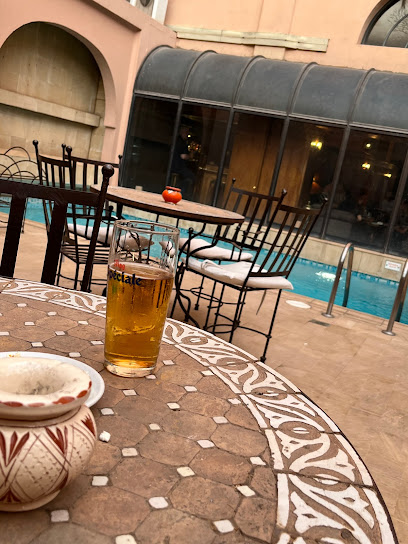
Bar de L'Escale
Discover Bar de L'Escale, a lively bar in Marrakech offering a perfect blend of local charm, delicious drinks, and a vibrant atmosphere for all visitors.
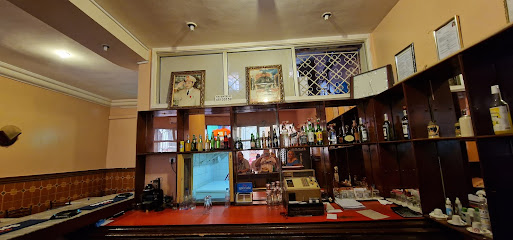
SKY-BAR
Discover the heights of Marrakech nightlife at SKY-BAR, where breathtaking views and vibrant cocktails create unforgettable moments.
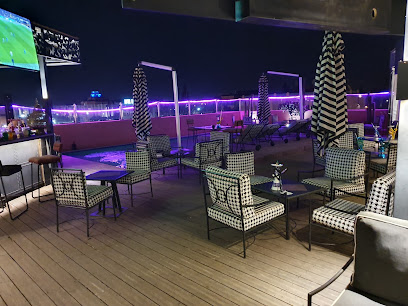
LE MECANO
Discover the vibrant nightlife of Marrakech at Le Mecano, where drinks, music, and culture come together for an unforgettable experience.
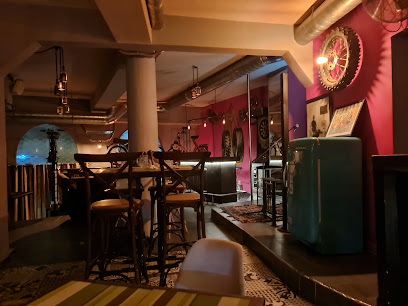
Le Perroquet
Experience the vibrant nightlife and exquisite flavors of Marrakech at Le Perroquet, your go-to bar and restaurant for unforgettable moments.
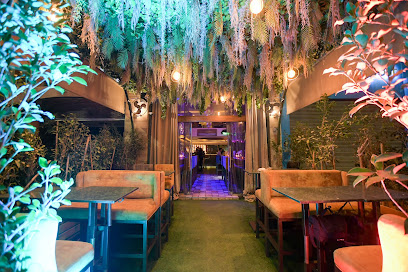
Fan Zone
Experience the thrill of live sports and the relaxation of hookah at Fan Zone, Marrakech's premier sports bar destination.
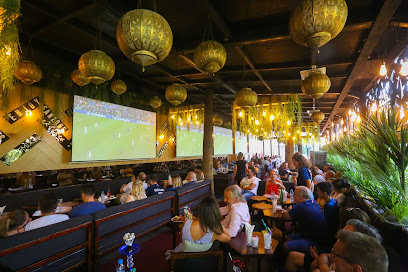
Churchill Bar
Experience the elegance of The Churchill Bar at La Mamounia, a luxurious spot for exquisite drinks and rich history in the heart of Marrakech.
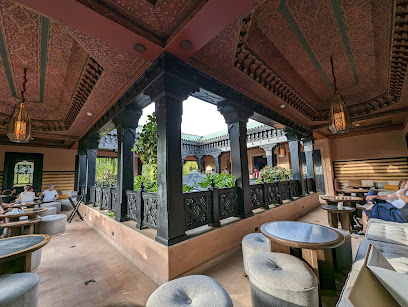
MySky | Rooftop Lounge Restaurant - Bar
Discover the enchanting MySky Rooftop Lounge in Marrakech, where stunning views and exquisite cuisine create an unforgettable dining experience.
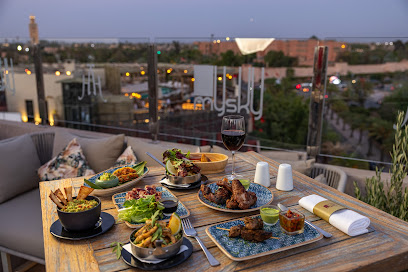
Local Phrases about Marrakech Region
-
- Helloسلام
[salaam] - Goodbyeوداعا
[wadaeana] - Yesنعم
[naam] - Noلا
[laa] - Please/You're welcomeمن فضلك
[min fadlik] - Thank youشكرا
[shukran] - Excuse me/Sorryعذرا
[azraan] - How are you?كيف حالك؟
[kayf halak?] - Fine. And you?بخير. وأنت؟
[bikhayr. wa anta?] - Do you speak English?هل تتكلم الإنجليزية؟
[hal tatakallam al'injlizia?] - I don't understandلا أفهم
[la afham]
- Helloسلام
-
- I'd like to see the menu, pleaseأريد أن أرى القائمة، من فضلك
[urid an ara alqa'ima, min fadlik] - I don't eat meatأنا لا أتناول اللحم
[ana la atnawal allahm] - Cheers!صحتين!
[sahatayn] - I would like to pay, pleaseأريد أن أدفع، من فضلك
[urid an adfae, min fadlik]
- I'd like to see the menu, pleaseأريد أن أرى القائمة، من فضلك
-
- Help!النجدة!
[alnajdah!] - Go away!انصرف!
[ansarif!] - Call the Police!اتصل بالشرطة!
[itassal bialshurta!] - Call a doctor!اتصل بالطبيب!
[itassal bialtabib!] - I'm lostضاعت الطريق
[da'at altariq] - I'm illأنا مريض
[ana mareed]
- Help!النجدة!
-
- I'd like to buy...أريد أن أشتري...
[urid an ashtari...] - I'm just lookingأنا فقط أتفرج
[ana faqat atfarij] - How much is it?كم ثمنه؟
[kam thamanuh?] - That's too expensiveهذا غالي جدا
[hatha ghali jiddan] - Can you lower the price?هل يمكنك تخفيض السعر؟
[hal yumkinuk takhfid alsaeer?]
- I'd like to buy...أريد أن أشتري...
-
- What time is it?كم الساعة؟
[kam alsaa'ah?] - It's one o'clockالساعة الواحدة
[alsaa'ah alwahidah] - Half past (10)العاشرة والنصف
[alaashirah walnisf] - Morningالصباح
[assaabah] - Afternoonالظهر
[adhuhur] - Eveningالمساء
[almasa'] - Yesterdayأمس
[ams] - Todayاليوم
[alyawm] - Tomorrowغدا
[ghadan] - 1واحد
[wahid] - 2اثنان
[ithnan] - 3ثلاثة
[thalatha] - 4أربعة
[arba'a] - 5خمسة
[khamsa] - 6ستة
[sitta] - 7سبعة
[sab'a] - 8ثمانية
[thamaniah] - 9تسعة
[tisa'a] - 10عشرة
[asharah]
- What time is it?كم الساعة؟
-
- Where's a/the...?أين...؟
[ayn...?] - What's the address?ما هو العنوان؟
[ma huwa aleunwan?] - Can you show me (on the map)?هل يمكنك أن تريني (على الخريطة)؟
[hal yumkinuk an tareeni (ala alkharitah)?] - When's the next (bus)?متى الحافلة القادمة؟
[mata alhafilat alqadimah?] - A ticket (to ....)تذكرة (إلى ....)
[tadhkirah (ila ....)]
- Where's a/the...?أين...؟
History of Marrakech Region
-
Marrakech was founded in 1070 by Abu Bakr ibn Umar, a leader of the Almoravid dynasty. The city quickly became a significant center of commerce, learning, and culture. Its strategic location facilitated trade routes connecting the Sahara with Europe and sub-Saharan Africa.
-
During the 11th and 12th centuries, the Almoravid and Almohad dynasties, both Berber Muslim dynasties, played crucial roles in shaping the region. The Almohads, in particular, were known for their architectural contributions, including the Koutoubia Mosque, which remains an iconic landmark in Marrakech.
-
The 16th century marked the rise of the Saadian dynasty, who ushered in a golden age for Marrakech. Under the rule of Sultan Ahmad al-Mansur, the city flourished with the construction of grand palaces, gardens, and the famous Saadian Tombs. This period also saw significant advancements in art, science, and trade.
-
In 1912, Morocco became a French protectorate, which significantly influenced Marrakech's architecture and urban planning. The creation of the modern city (Ville Nouvelle) alongside the historic medina is a notable result of this period. The French influence is still visible in the city's infrastructure and cultural life.
-
After gaining independence from France in 1956, Marrakech underwent a period of modernization and growth. The city has become a major tourist destination, known for its bustling souks, historic sites, and vibrant street life. Modern developments have been carefully balanced with the preservation of its rich cultural heritage.
-
Marrakech is renowned for its cultural festivals, such as the Marrakech International Film Festival and the Marrakech Popular Arts Festival. These events celebrate the region's artistic heritage and draw international attention. Traditional crafts, music, and cuisine continue to play a vital role in the city's cultural identity.
-
The historic medina of Marrakech, with its maze-like alleys, vibrant souks, and significant monuments, was designated a UNESCO World Heritage Site in 1985. It exemplifies the city's historical and cultural significance and remains a living testament to its rich past.
Marrakech Region Essentials
-
Marrakech Region is well-connected by air, road, and rail. The primary gateway is Marrakech Menara Airport (RAK), which serves numerous international and domestic flights. From the airport, you can take a taxi, airport shuttle, or rent a car to reach the city center. Alternatively, Marrakech is accessible by train from major Moroccan cities such as Casablanca, Rabat, and Fes. The ONCF (Office National des Chemins de Fer) provides comfortable and efficient rail services. Buses operated by CTM and Supratours also connect Marrakech to other Moroccan cities.
-
Within Marrakech, transportation options include taxis, buses, and horse-drawn carriages known as 'caleches.' Petit taxis are small, metered vehicles that are perfect for short trips within the city, whereas grand taxis are larger and can be used for longer distances or shared rides. The city also has a reliable public bus network managed by ALSA. For an authentic experience, explore the medina (old city) on foot, but be prepared for narrow alleyways and bustling souks.
-
The official currency in Morocco is the Moroccan Dirham (MAD). Credit cards are widely accepted in hotels, restaurants, and larger shops, but it is advisable to carry cash for smaller purchases and in rural areas. ATMs are available throughout Marrakech, and currency exchange services can be found at the airport, banks, and authorized exchange offices. Tipping is customary in Morocco, typically 10% in restaurants and small amounts for service providers.
-
Marrakech is generally safe for tourists, but it is important to take standard precautions. Be cautious of pickpockets, especially in crowded areas like Jemaa el-Fnaa square and the souks. Avoid walking alone at night in unfamiliar areas and keep your belongings secure. Areas such as Sidi Youssef Ben Ali and Bab Doukkala have higher crime rates targeting tourists, so exercise extra caution. Always use licensed taxis and avoid accepting unsolicited offers for guided tours.
-
In case of emergency, dial 19 for police assistance, 15 for medical emergencies, and 15 for fire services. Marrakech has several hospitals and clinics, including the Mohammed VI University Hospital and Clinique Internationale Marrakech. It is advisable to have travel insurance that covers medical expenses. For minor health issues, pharmacies are widely available and can provide over-the-counter medications.
-
Fashion: Do dress modestly, especially when visiting religious sites. Avoid wearing revealing clothing. Religion: Do respect local customs and traditions. Always cover your head when entering mosques and refrain from taking photos without permission. Public Transport: Do be respectful and give up your seat to elderly passengers. Don't eat or drink on public transport. Greetings: Do greet people with a handshake. A friendly 'Salam' (peace) is also appreciated. Eating & Drinking: Do try local delicacies and accept food offerings graciously. Don't refuse hospitality, as it is considered impolite.
-
To experience Marrakech like a local, visit the local markets (souks) early in the morning to avoid crowds and get the best deals. Engage with locals, who are often friendly and willing to share stories about their culture. Don't miss visiting a traditional hammam (bathhouse) for a unique and relaxing experience. For an authentic taste, try street food like 'msemen' (Moroccan pancakes) and 'tanjia' (slow-cooked meat). Take part in a cooking class to learn how to prepare Moroccan dishes like tagine and couscous.
Trending Landmarks in Marrakech Region
Nearby Cities to Marrakech Region
-
Things To Do in Essaouira
-
Things To Do in Taroudant
-
Things To Do in Agadir
-
Things To Do in Casablanca
-
Things To Do in Meknes
-
Things To Do in Fes
-
Things To Do in Asilah
-
Things To Do in Chefchaouen
-
Things To Do in Tangier
-
Things To Do in Tetouan
-
Things To Do in Europa Point
-
Things To Do in Gorham's Cave Complex
-
Things To Do in St. Michael's Cave
-
Things To Do in Alameda Botanic Gardens
-
Things To Do in Queensway Quay Marina













